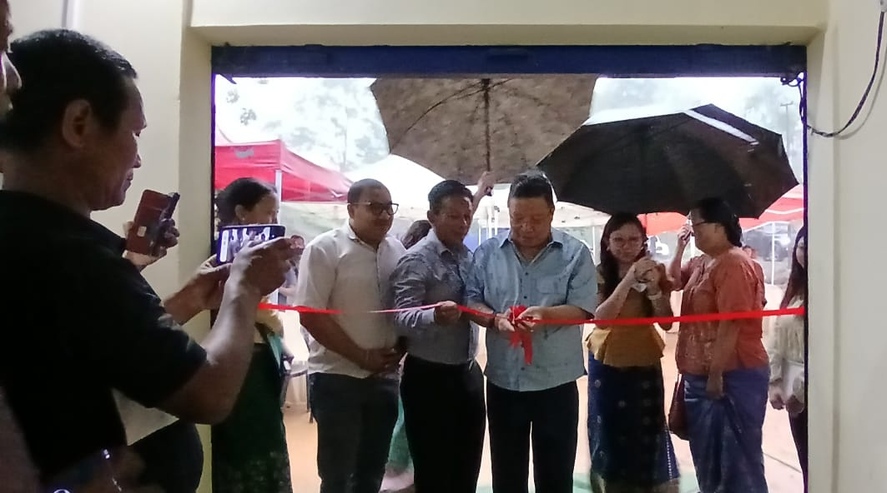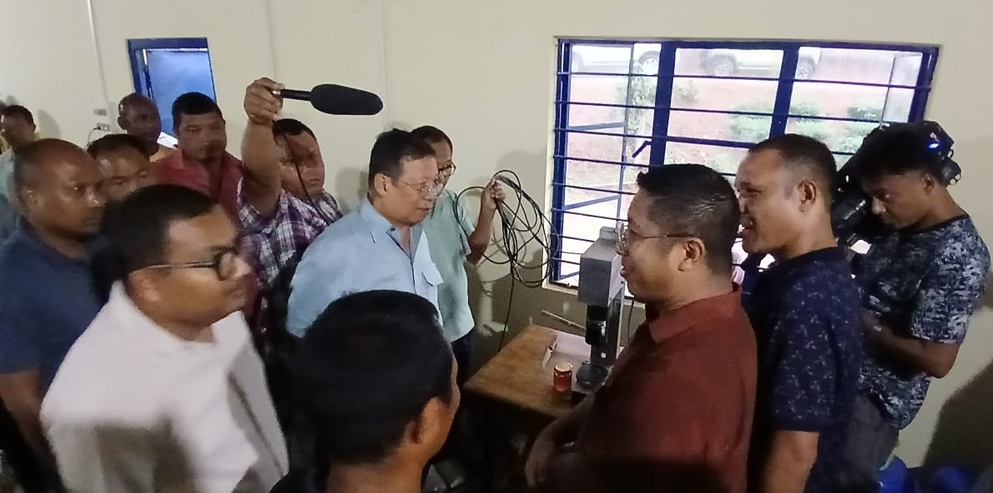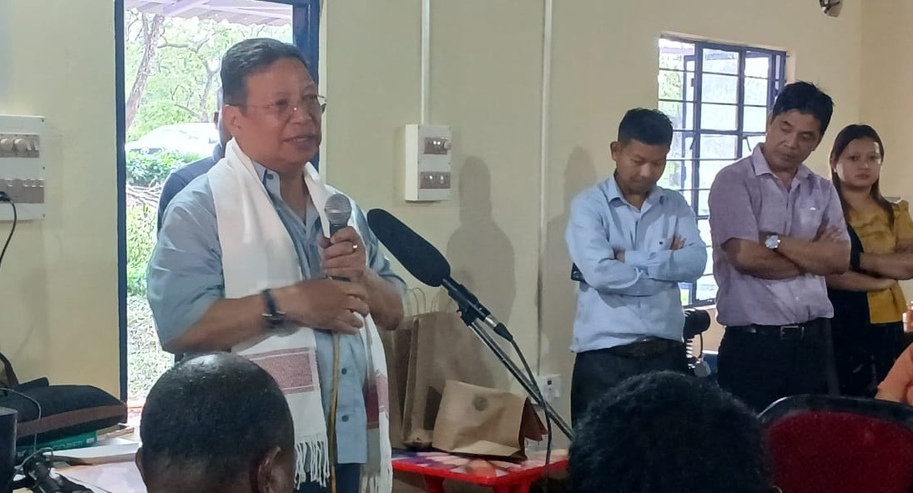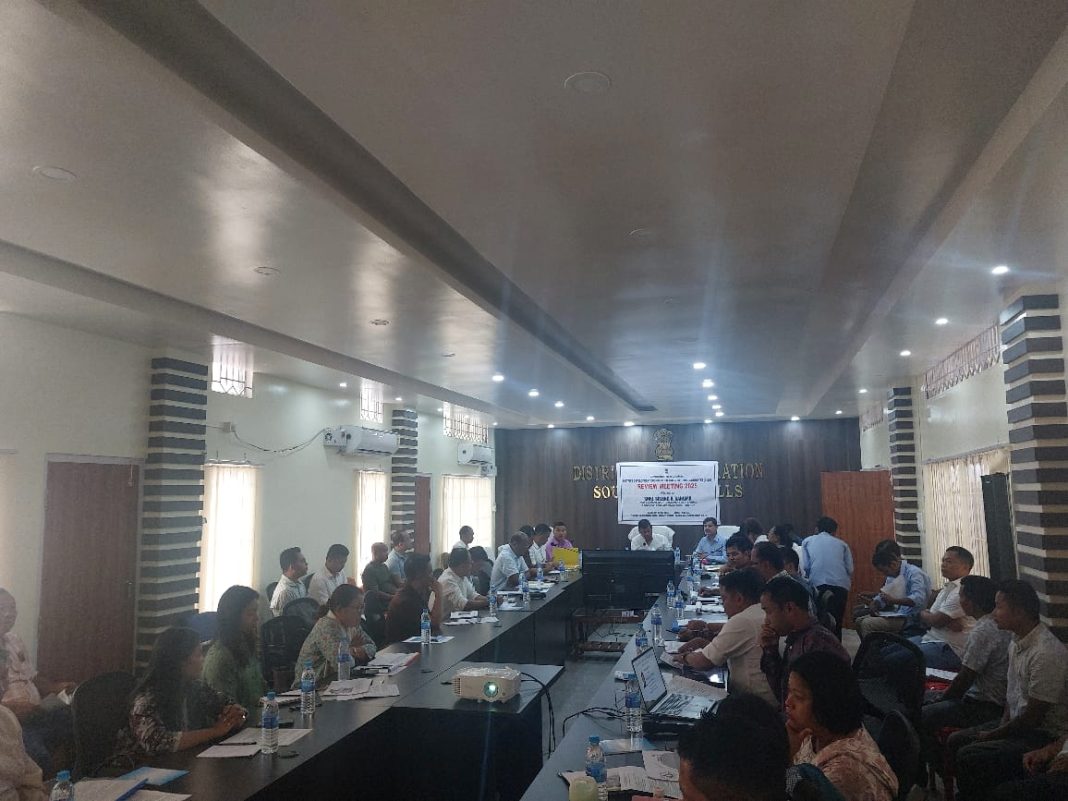
Tura, April 22: A new honey processing centre has opened at the scenic village of Chandigre, located at the foothills of the Nokrek Range on Tuesday by Meghalaya Assembly speaker Thomas A Sangma. The event was organized by the District Commerce and Industries Centre (DCIC), Tura.

Present at the inauguration were several dignitaries and government officials including members of the Bee-Keeping Cooperative Society. People from 16 villages in the Nokrek area also attended the event.
Addressing the gathering, Thomas A Sangma praised the quality of honey produced in the Garo Hills, calling it among the best in the world. He shared his experience from his time as a Rajya Sabha MP, when he brought honey from Nokrek to Delhi. He said that when the honey was tested by Dabur, it was rated the best.

He encouraged the bee-keepers of the region to expand their cooperative society, which currently has 357 members, to at least 1,000. He promised to support the community further by sanctioning another processing unit if they reach that target. “We must make full use of the opportunities given by the Government. Bees live in unity, and we must learn from them. They play a key role in pollination, which is essential for food production and our survival,” he said.
General Manager of DCIC Tura, Don Felecient R Marak, informed that the new centre will soon be handed over to the Nokrek Area Bee-Keeping Cooperative Society Limited, Chandigre. The society, made up of members from 16 villages, will manage the centre with guidance from the department. He added that earlier, women in the area were trained to make soaps, candles, and fresheners from beeswax, further supporting income generation and environmental conservation.

F. A. Sangma, Functional Manager and Nodal Officer of the Apiculture Mission, said the centre was sanctioned under the Apiculture Mission 2.0. An amount of Rs. 15 lakh for the honey processing unit and Rs. 15 lakh for infrastructure development had been sanctioned.
He explained that the centre includes honey extractors, a processing unit, bottling, packaging, and sealing machines. So far, 5 bee-rearing boxes have been distributed, with each box capable of producing 7 to 8 kilograms of honey during each season three times a year.
The new Honey Processing Centre is expected to become a key facility for honey producers in the region and a model for sustainable, environmentally friendly livelihood.





